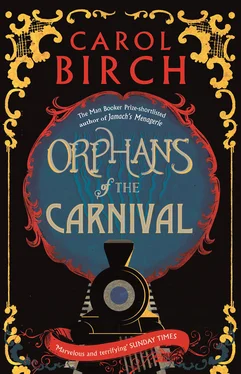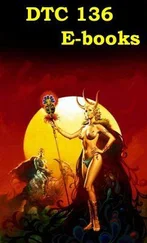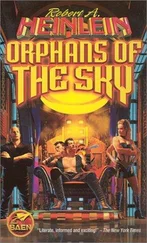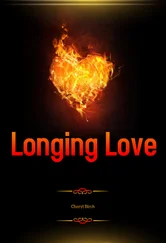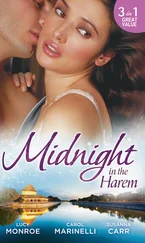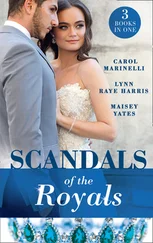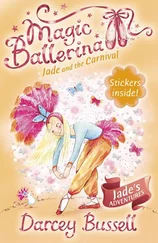‘It’s all right, Theo,’ she said, and smiled, and a peculiar understanding passed between them.
‘Julia, I will never abandon you. Never. I will always look after you, I promise.’ He smiled and proclaimed with mock solemnity, ‘I will look after you in this dark, dirty little world,’ then laughed and kissed her forehead, drew her head down and stroked again. ‘You have lovely hair,’ he said.

It was all off with Laurie. Adam had hung around and hung around, till the right night came, rain, candles, her birthday cards fluttering from the mantelpiece at regular intervals, one from her mother, one from her brother, one from Auntie Irene and Uncle Bob who she hadn’t seen since 1962 when they came to her father’s funeral. A world beyond this house. He didn’t know her, he realised, didn’t know her at all. Who are these parents? These people? Oh, they were just parents, she said. You know. They were OK, I suppose. That scar? How d’you get that scar? Wouldn’t you like to know? Fought a bear.
She’d teased her hair out in a big bush and wore a red hat on top of it. Bright red lipstick too, a big wide slash of it to match the hat. This room, this house, this whole smoky moment, stuck in time, as every moment surely is. The raw rich smell of burning herb, the thick dope air. Ultra-real. She rolled and licked and lit a cigarette casually, as if her hands had done it a million times.
‘Oh Rosie, my little Rosie, my little Rose,’ Adam said, then felt a fool and didn’t know what to do.
She smiled. Then kissed him.
*
Ever since, they’d been in bed more or less all the time. The rest of life stopped. Of course lust was in it, but it was love more than anything he’d known. He thought it might kill him.
‘I’ll go down with you,’ he said, ‘if that’s what you want.’
‘Go down where?’
‘Wherever you’re going. The rabbit hole. Madness. I don’t care.’
‘What?’ She was hardly listening. ‘What are you talking about?’
‘Nothing, nothing.’
Forget all. Forget and fall. Skyscrapers rise, grand edifices of junk, towers, a wooden cobra, teddy bears and dolls, pictures, ropes, Buddha, a horse, old jigsaws, shells, ashtrays, boxes and bottles, umbrellas, fans, books, books, books. Chewed pencil stubs among the shoelaces and discarded shopping lists, the boxes things came in.
The madness increases. The weeks roll on, four, five, six, more, forever. Getting on for six months, and he’d look at her and wonder what was real, this or some odd remembered thing, far down at the other end of a telescope, a life as unreal as the mother, the brother, the auntie and uncle, all that mysterious stuff she dragged behind her, her backdrop; only this was his backdrop, the piano in the school hall, his Uncle Tommy’s greyhound, his Grandma, his mates, the band he was in, the drawings he did all over the walls in his room. A whole existence she’d never know, just as he’d never know hers.
He started painting her.
Draped, naked, sleeping, bathing, reading, at a window, in shadow, in white like an angel, fully clothed, made up like a forties movie star, full face, close-up, profile, distorted. All in purple. Photorealist, impressionist, in miniature, on a vast canvas or on the wall, in pencil, watercolour, oils, acrylics.
He never painted anything else ever again, just her, and the funny thing was, nothing he ever painted after he met her was ever as good as his old stuff. He knew it wasn’t going to last. It was like drinking for the moment, not caring about the hangover. If he’d been wood or sad plastic, torn or fragile, worthless, she’d have put him on her shelf and kept him forever. Now and again her heart would have bled softly for him. People though — people with their mysterious pesky hearts — she couldn’t cope with that. The way she’d turned on a pin with poor old Laurie, one day all over him, the next just a friend, surprised and mildly indignant at his grief. It’d be the same with him when his time came. And in the end she’d be alone because it was the only way she could be, and he wondered what it was in that bland otherworld of mother, brother, uncle and auntie that had made her that way.

A HUMAN MONSTER
Readers will recall last week’s report concerning the furore at Leipzig’s Kroll Theatre. The outcry, which resulted in the immediate closure of Der Curierte Meyer , a lively little musical comedy, was a consequence of several impassioned complaints from both citizens and members of the medical establishment concerned about the possible harmful effects of the public’s exposure to its lead performer, the remarkable Julia Pastrana. In short, it was decided that the theatre’s aesthetic frame was harmed by association with this deformed creature.
‘What are we to make of this? Very little, one imagines. There is nothing new about the display of human oddities. The problem arises when the sideshow is brought into a respectable theatre. Yet we learn that Miss Pastrana has graced the stage of the Saint Charles in New Orleans, where once the divine Jenny Lind enchanted the cream of society. She has been guest of honour at military balls, converses ably, sings tolerably, dances prettily and speaks three languages. Unfortunately German is not one of them, as I discovered when I interviewed her in her dressing room at Wirth’s Circus. Her English, though, is fluent, so we got along remarkably well.
Miss Pastrana is a young woman of 23. By birth a Mexican Indian, she grew up in the Spanish Catholic household of the state governor of Sinaloa. I cannot begin to convey the full horror of her appearance. The accompanying pencil drawing, brilliant as it is, does not do her justice. No mere representation could. For the full effect, you must see the shine in her depthless black eyes. You must hear the voice, low and womanly, emerging from the thick-lipped mouth, catch the occasional glimpse of the lumpy muscle mass of tongue as she speaks, the veritable rampart of coral-like excrescence behind those lips. Her nostrils are vast, her nose wide-bridged and domed. Her head is very large in relation to her body, her shoulders broad, her bosom voluptuous. She is absolutely covered in thick black hair, face and all, except for the palms of her hands, which are dusky rose and delicate. There is a melancholy in the eyes, which causes pity. I do not think she is very intelligent but she does seem to be aware of her situation.
‘Miss Pastrana, life must have changed so much for you.’
‘So much!’
‘Is it tiring for you to be so constantly travelling?’
‘Of course, sometimes. But there’s good and bad in every situation. Sometimes I get tired, but if I wasn’t travelling I wouldn’t be seeing so many interesting places and meeting so many people.’
‘Would you describe yourself as a happy person?’
‘Sometimes one thing, sometimes another—’
You tell them Julia. You tell them. You show them. Theo had given her a glass of wine for confidence before he let the man in. You remember —
‘In fact,’ she said with that terrible smile, ‘the entire experience has been wonderful. I have sold out theatres in America and England. This small upset in Leipzig — that is nothing.’
She had dressed herself carefully, done her hair, thought herself back into a defiant state of mind, composed herself in dignity and made herself cheerful.
By God, you’re a tower of strength , he’d said, his lips brushing her fingertips.
‘Does it pain you, Miss Pastrana? Your condition. You are clearly a creature of…’
Читать дальше
